 | | | At the Rachel Carson Council, greenwashing has been weighing heavily on our minds. Whether in our new report, Greenwashing: A Report on the Corporate Selling of Polluting Wood Pellet Production, through our RCC Fellows writing in “To Be, Rather Than to Seem:” False Promises of Sustainability, or in news such as the University of Florida passing a Green New Deal Resolution, climate advocates and campuses are calling for industry, universities, and businesses to do better. Students across the country are leading this charge. At the University of Florida, students are calling on the university to increase transparency around investments, carry out the Department of Sustainability’s climate plan, stop taking money from the fossil fuel industry, include those who are most affected by climate change in decision making, and divest from fossil fuels. These are all critical steps in order to secure a just, equitable transition towards a fossil free future. 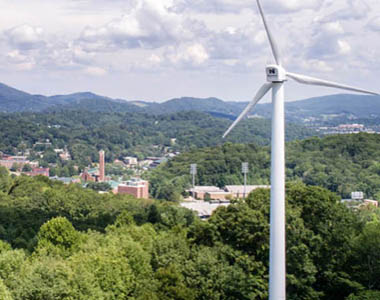 At St. Lawrence University, RCC National Environment Leadership Fellow, Valeria Obregon has laid out a step-by-step guide for students on how to make an ask of administrators and others in “Are you Afraid to Ask?” At Appalachian State University, RCC National Environment Leadership Fellow, Ben Pluska, calls out his university to deliver on its promises of being one of the greenest universities. At St. Lawrence University, RCC National Environment Leadership Fellow, Valeria Obregon has laid out a step-by-step guide for students on how to make an ask of administrators and others in “Are you Afraid to Ask?” At Appalachian State University, RCC National Environment Leadership Fellow, Ben Pluska, calls out his university to deliver on its promises of being one of the greenest universities.
As students push their universities to do better, faculty are also delivering research on what a just, climate-friendly future looks like. Researchers at UNC-Wilmington, for example, have developed a Blue Economy Index. It hopes to balance “...using ocean resources sustainably for economic growth and jobs while making sure to keep the ecosystem healthy.” 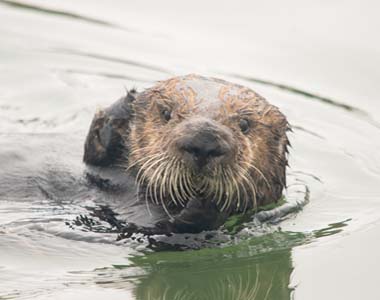 And, in an important finding, Mallory Barnes of Indiana University has shown that the reforestation of trees in the eastern U.S. has likely led to a decrease in the surrounding air temperature. At Duke University, Brian Silliman, Rachel Carson Distinguished Professor of Marine Conservation Biology at the Nicholas School of the Environment and Brent Hughes, Associate Professor of Biology at Sonoma State University and a former postdoctoral scholar in Silliman's lab at Duke, have found that, aside from being adorable, sea otters have been beneficial in restoring the degraded ecology of the West Coast. And, in an important finding, Mallory Barnes of Indiana University has shown that the reforestation of trees in the eastern U.S. has likely led to a decrease in the surrounding air temperature. At Duke University, Brian Silliman, Rachel Carson Distinguished Professor of Marine Conservation Biology at the Nicholas School of the Environment and Brent Hughes, Associate Professor of Biology at Sonoma State University and a former postdoctoral scholar in Silliman's lab at Duke, have found that, aside from being adorable, sea otters have been beneficial in restoring the degraded ecology of the West Coast. As part of the Rachel Carson Council Campus Program and its approach towards a climate friendly future, each year the RCC selects up to thirty outstanding environmental student leaders who are doing climate and justice work on their campuses or have a project to propose. The National Environment Leadership Fellowship (NELF) offers a $2,000 stipend, mentoring, opportunities to publish, and tuition-free attendance at RCC’s annual American Environmental Leadership Institute at the end of July. You can find a full description of RCC Fellowships here https://rachelcarsoncouncil.org/campus-program/rcc-fellowship-information-2022-2023/ or, if you are ready to apply, you can go directly to the application form. Apply with your idea today! The deadline for RCC Fellowships for 2024-2025 is March 15. | | | | | | | | 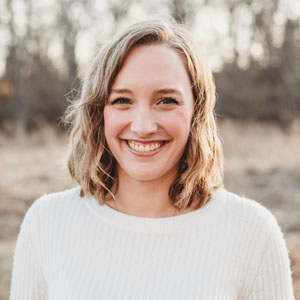 Mackenzie Kirschbaum, M.S., is the Associate Director of Civic and Campus Engagement for the Rachel Carson Council. An advocate for environmental justice, climate change and policy, Mackenzie works to combine science, justice, and policy to advocate for imaginative solutions to environmental challenges. Mackenzie Kirschbaum, M.S., is the Associate Director of Civic and Campus Engagement for the Rachel Carson Council. An advocate for environmental justice, climate change and policy, Mackenzie works to combine science, justice, and policy to advocate for imaginative solutions to environmental challenges. | | | | | | University of Florida Becomes First Public College Student Government to Pass Green New Deal resolution The University of Florida (UF) Student Senate passed a Green New Deal (GND) resolution Tuesday, with supporters saying they were the first public college in the country to do so. The five-volume resolution was passed unanimously and demanded the university take more action in combatting climate change on campus. | | | | | | | | Michael Mann, a Leading Climate Scientist, Wins His Defamation Suit The researcher had sued two writers for libel and slander over comments about his work. The jury awarded him damages of more than $1 million. The climate scientist Michael Mann on Thursday won his defamation lawsuit against Rand Simberg, a former adjunct scholar at the Competitive Enterprise Institute, and Mark Steyn, a contributor to National Review. | | | | | | | | As Sea Otters Recolonize California Estuary, They Restore Its Degraded Geology In the several decades since sea otters began to recolonize their former habitat in Elkhorn Slough, a salt marsh-dominated coastal estuary in central California, remarkable changes have occurred in the landscape. Erosion of creekbanks and marsh edges in areas with large otter populations has slowed by up to 90%, at a time when rising sea levels and stronger tidal currents should be causing the opposite effect. | | | | | | | | Very Cool: Trees Stalling Effects of Global Heating in Eastern US, Study Finds Vast reforestation a major reason for ‘warming hole’ across parts of US where temperatures have flatlined or cooled. Trees provide innumerable benefits to the world, from food to shelter to oxygen, but researchers have now found their dramatic rebound in the eastern US has delivered a further, stunning feat – the curtailing of the soaring temperatures caused by the climate crisis. | | | | | | | | Examining a Century of Change in a New York City Urban Forest Urban forests have long been understudied, but inventory data from a forest stewarded by the New York Botanical Garden has provided scientists at the Yale School of the Environment with a rare opportunity to study a century of changes in one urban forest — information that could help guide regional approaches to forest management. Data collected from the Thain Family Forest has provided an opportunity for scientists from The Forest School at YSE to study a century of changes of its composition. | | | | | | | | “To Be, Rather Than to Seem:” False Promises of Sustainability Driving up the last swell of mountain on Highway 421 towards Boone, North Carolina, a wind turbine pierces the horizon. The turbine is surrounded by sloping hills of trees and foliage that blanket your vision. This small corner of the Appalachian Mountains is charmed by its idyllic image comprised of a thriving forest and rural Appalachian life. The surrounding mountains also cradle Appalachian State University (ASU), a public educational institution that is part of the UNC System. | | | | | | | | | | | | | | Rachel Carson and the Case for Hibernation In a “just not quite fatal” winter, Rachel Carson recommends we divert our efforts of mastery from nature to ourselves. “Where does Goldilocks go when it’s cold?” I watched my grandpa set down the white painter’s bucket full of fish food, eager to plunge my 7-ish-year-old hands inside. The pellets smelled earthy and comforting, like the tool shed where we hang snake skins. I grabbed a grubby fistful and scattered them across the pond like rain. | | | | | | | | Joining the “No-Buy Challenge” From billboards to ads in our social media feeds to influencers advertising new products and more, we are constantly surrounded by advertising. Yet, there is a disconnect between the desire to buy and use these material goods and knowing what goes into the production process behind the glitter and the fate of our purchase once we discard it. This disconnect is what makes consumerism thrive. According to Parcel Path, Amazon delivers 3.5 million packages daily in the United States alone. | | | | | | | | Are You Afraid to Ask? If you are involved in environmental activism on a college campus, you will soon realize that you can’t do it alone. Asking for help can be scary and nerve-racking, especially when you don’t know where to go, or have been faced with getting a “No!” in the past. Though people’s willingness to help is out of your control, here are a few strategies to strengthen your ask, to increase your chances of getting a “Yes!” | | | | | | | | UNCW Launches Index to Track and Support Sustainable Use of Ocean Resources The University of North Carolina Wilmington has launched the UNC Wilmington Blue Economy Index, per an announcement on Monday, Feb. 5. The term Blue Economy refers to using ocean resources sustainably for economic growth and jobs while making sure to keep the ecosystem healthy. | | | | | | | | Combining Art and Data to Spur Climate Action YSE alumna Allyza Lustig ’17 MEM led the Art x Climate project, the first-ever gallery of visual art featured in the National Climate Assessment. From Keith Haring’s brightly colored murals on AIDS and drug addiction to Jean-Michel Basquiat’s equally colorful works addressing police brutality, racism, and issues of identity, art has increased our understanding of a wide range of social, political, and even scientific issues. | | | | | | | | A Synergistic Approach to Ocean Conservation As the visiting McCluskey Fellow in Conservation at the Yale School of the Environment, Alex Muñoz will spend the next year developing a roadmap to accelerate the pace of global ocean conservation and designing Yale’s first-ever course fully focused on ocean conservation. About 400 miles off the coast of Chile sits the Archipiélago Juan Fernández, a sparsely inhabited series of islands that is home to a small community of fishers who catch lobsters in the waters around Juan Fernández and the neighboring Desventuradas Islands. | | | | | | | | Catawba College Construction Project Residents and visitors to the area may be wondering what the construction project is at Catawba College along West Innes Street. Did something break they need to repair? Is it a new building? Well, it is neither of those. Furthering their commitment to sustainability initiatives, Catawba is excited to be installing a closed-loop geothermal system in the heart of campus at the Chapel Circle green space. | | | | | | | | Rain Comes to the Arctic, With a Cascade of Troubling Changes Rain used to be rare in the Arctic, but as the region warms, so-called rain-on-snow events are becoming more common. The rains accelerate ice loss, trigger flooding, landslides, and avalanches, and create problems for wildlife and the Indigenous people who depend on them. In August of 2021, rain fell atop the 10,551-foot summit of the Greenland ice cap, triggering an epic meltdown and a more-than-2,000-foot retreat of the snowline. | | | | | | | | Virginia Tech Students Participate in Annual U.N. Climate Change Conference In early December, a contingent from the university attended the deliberations in Dubai, where negotiators, legislators, and observers from nearly every country in the world gathered to assess ways to address issues related to climate change. Anna Pletch was one of seven Virginia Tech students, along with two faculty members, who attended the 2023 United Nations Climate Change Conference in Dubai in early December. | | | | | | | | Climate Storytelling at Vanderbilt: Mary Annaïse Heglar Highlights “The Highs and Lows of Climate Grief” Most conversations about the climate crisis revolve around the science and policy considerations about how to mitigate them. But what if the stories we tell about our changing climate are just as important to those plans as science and its policy ramifications? Writers, artists and scholars of the environmental humanities have opened a parallel discussion about climate change—one that examines not just what the climate crisis is, but how it feels—that has grown steadily louder. | | | | | | | | Gov. Cooper Calls For Wetlands, Forest Restoration, Rebuffs Lawmakers’ Stripping Protections (Duke) A new executive order asks state cabinet agencies to permanently conserve and reforest North Carolina’s wetlands and to plant urban trees, activities that could replenish 3 million acres by 2040. Gov. Roy Cooper yesterday issued Executive Order 305, essentially an environmental rebuttal to judicial and legislative actions that stripped protections from 2.5 million acres of wetlands in North Carolina. | | | | | | | | Data For Change: Measuring the Contributions of Small-scale Fisheries (Duke Marine Lab) Around the world, millions of people in coastal communities rely on fishing for food and jobs. In these communities, small-scale fisheries (SSFs) represent a way of life that has shaped development, environmental stewardship values, and culture over thousands of years. Despite their importance for livelihoods and environmental protection, SSFs tend to be understudied and ignored. | | | | | | | | Misplaced Trust Stolen Indigenous land is the foundation of the land-grant university system. Climate change is its legacy. Alina Sierra needs $6,405. In 2022, the 19-year-old Tohono O’odham student was accepted to the University of Arizona, her dream school, and excited to become the first in her family to go to college. Her godfather used to take her to the university’s campus when she was a child, and their excursions could include a stop at the turtle pond or lunch at the student union. | | | | | | | | Campus Divestment Activists Eye Fossil Fuel Profits on Stolen Land Grist investigation reveals 14 land-grant universities making millions off Indigenous land. Samantha Gonsalves-Wetherell, a senior at the University of Arizona, has spent years urging university officials to take climate change seriously. As a leader of UArizona Divest, she and her classmates have been pushing the university toward three goals: to divest from fossil fuels by 2029; commit to no further investments in fossil fuels; and to implement socially responsible investing goals. | | | | | | | | Academic Freedom Battles Roil Indiana University The cancellation of an art exhibit and other recent moves by university leaders have turned the campus into a free speech battleground. Nearly six months after the Israel-Hamas war unleashed a steady tide of student-led protests on college campuses across the United States, Indiana’s public flagship university is emerging as a free speech battleground. The latest dispute is over the abrupt cancellation of a long-planned art exhibition at Indiana University at Bloomington’s Eskenazi Museum of Art, Samia Halaby: Centers of Energy. | | | | | | | | Our Alarming Airborne PCBs I want to talk about the failures of government to properly regulate the egregious choices polluters like Monsanto and GE have made as they chose profit over public health and the environment. When distinguished scientists tell the world that toxic chemicals pose a serious threat to public health and the environment, are they alarmists? When a distinguished scientist demonstrates that toxic polychlorinated biphenyls (PCBs) vaporize, enter the airstream, and pose a threat to our health and the environment, is he an alarmist? | | | | | | | | Climate Books for Black History Month In this very political year, the fight for a sustainable future is also a fight for a fair and equitable society. 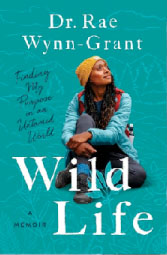 To win allies for climate action, activists must understand how the environment, intersects with concerns for the health and well-being of people and communities. Inequities of the past and the present must be addressed by the policies and programs offered for a sustainable future. To win allies for climate action, activists must understand how the environment, intersects with concerns for the health and well-being of people and communities. Inequities of the past and the present must be addressed by the policies and programs offered for a sustainable future.
Toward that end, this month’s list begins with four reports: Green 2.0’s just-published annual assessment of representation in environmental nongovernmental organizations and foundations, Black climate justice leader Jacqui Patterson’s new review of climate impacts and climate solutions for the Chisholm Legacy Project, Climate Advocacy Lab’s blueprint for a genuinely diverse and inclusive climate movement, and Greenpeace and Runnymede Trust’s proposal for confronting injustice.
The next set of books and reports survey specific sites of environmental injustice: communities living in the “fossil fuel sacrifice zone[s]” of Louisiana and Texas, communities, like Detroit, Michigan, that are struggling to recover from toxic water systems, and urban cores wrestling with “carbon gentrification.”  | | | | | | RCC Fellowship 2024-2025 The RCC National Environment Leadership Fellowship (NELF) Program is designed to identify outstanding students with a passion for environmental education, organizing, and advocacy and provide them with financial support to carry out valuable projects and campaigns on behalf of the RCC. To apply to the program, students propose projects that are focused on sustainability and environmental justice to be carried out from their campuses and their communities. | | | | | | | | RCC prides itself on its National Campus Network of 67 colleges and universities. We are working to engage faculty members, students, and administrators in our efforts for a more just and sustainable world. With our growing fellowship program, our presence on campuses across the country has never been greater. Contact RCC today to bring our staff to your campus for lectures, workshops, or meetings to help find the best ways to engage your faculty and students in the efforts against climate change, environmental justice, and the work of the Rachel Carson Council. Campus Visits with RCC President, Dr. Robert K. Musil 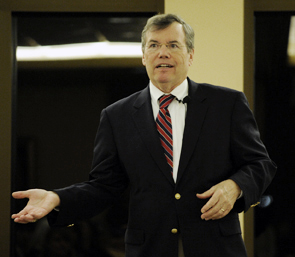 RCC President & CEO, Dr. Robert K. Musil, a national leader in climate change, environmental justice and health is again available to book for in-person campus speaking events! Musil has been called “informative, challenging and inspirational all at once.” He is “motivational” with “intellectual depth” and “extraordinary impact.” RCC President & CEO, Dr. Robert K. Musil, a national leader in climate change, environmental justice and health is again available to book for in-person campus speaking events! Musil has been called “informative, challenging and inspirational all at once.” He is “motivational” with “intellectual depth” and “extraordinary impact.”
Dr. Musil is available for campus lectures and visits involving classes, meetings with campus and community groups, consultations with faculty and administrators, or for Earth Day, Commencement, and other special events. Stays range from one to three days. Reduced fees are in place for 2024-2025 and can be designed to meet reduced budgets. To arrange a campus visit with Dr. Musil, contact the RCC President’s Office at office@rachelcarsoncouncil.org. The RCC also offers talks, classes, and workshops on student engagement, activism, sustainability, and the RCC Fellowship program with: Associate Director of Civic and Campus Engagement, Mackenzie Kirschbaum; Associate Director of Communications, Claudia Steiner; and Research and Policy Associate, Theo Daniels. To arrange, contact Associate Director of Civic and Campus Engagement, Mackenzie Kirschbaum. | | | | | | | |  The Rachel Carson Council Depends on Tax-deductible Gifts From Concerned Individuals Like You. Please Help If You can. The Rachel Carson Council Depends on Tax-deductible Gifts From Concerned Individuals Like You. Please Help If You can. | | | |  Sign Up Here to Receive the RCC E-News and Other RCC Newsletters, Information and Alerts. Sign Up Here to Receive the RCC E-News and Other RCC Newsletters, Information and Alerts. | | | | | | | | | | | |